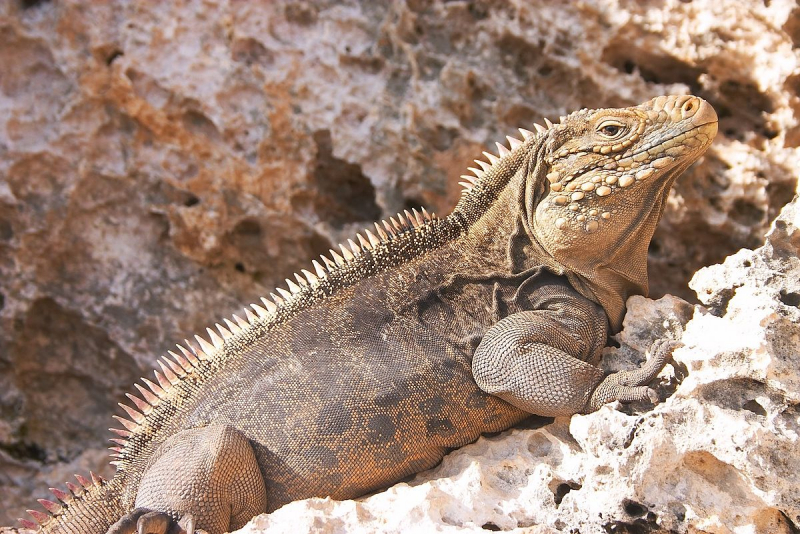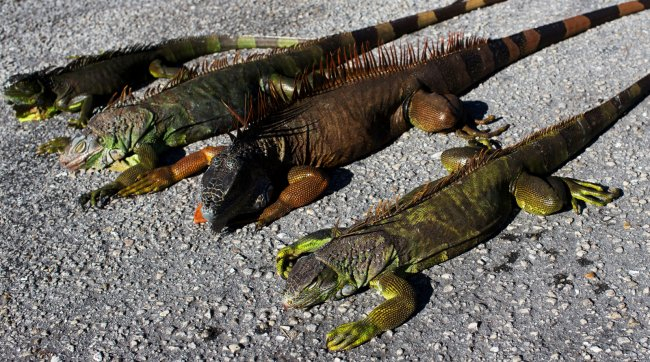They hate the cold and love sunbathing
Iguanas are ectotherms, which means that the temperature of their surroundings regulates their body temperature. Their body temperatures drop, their immune systems are compromised, and their metabolisms slow down when the temperature outside falls too low, making them more vulnerable to illness. They also require enough humidity to be hydrated (at least 60 to 70 percent), as they take in water via their skin. They like sunny days all year long and are quite warm. For iguanas to live, it must be hot. Iguana populations in central and northern Florida are thus rather small. Simply said, it never gets hot enough. Iguanas thrive in the warm climate of the Keys and the Miami region. Additionally, they require direct sunshine to survive. That explains why you frequently see them outdoors enjoying the sun.
The iguanas enter a condition of hibernation once the temperature dips below 40 degrees Fahrenheit because their muscles are practically immobilized. Their metabolism slows down in the cold, and they develop comatose-like symptoms. In the hot, humid tropics of Central America, this doesn't happen frequently, but in regions where humans have introduced them, like southern Florida, an unseasonably cold winter snap might cause a large number of these scaled creatures to lose their hold on tree branches and fall to the ground. Although it's pretty frightening to see, the fall doesn't necessarily portend death. Most iguanas don't have any negative consequences from the fall since they warm up with the temperature. As soon as the temperature rises to a point that the iguana's body can move again, it will regain consciousness.











